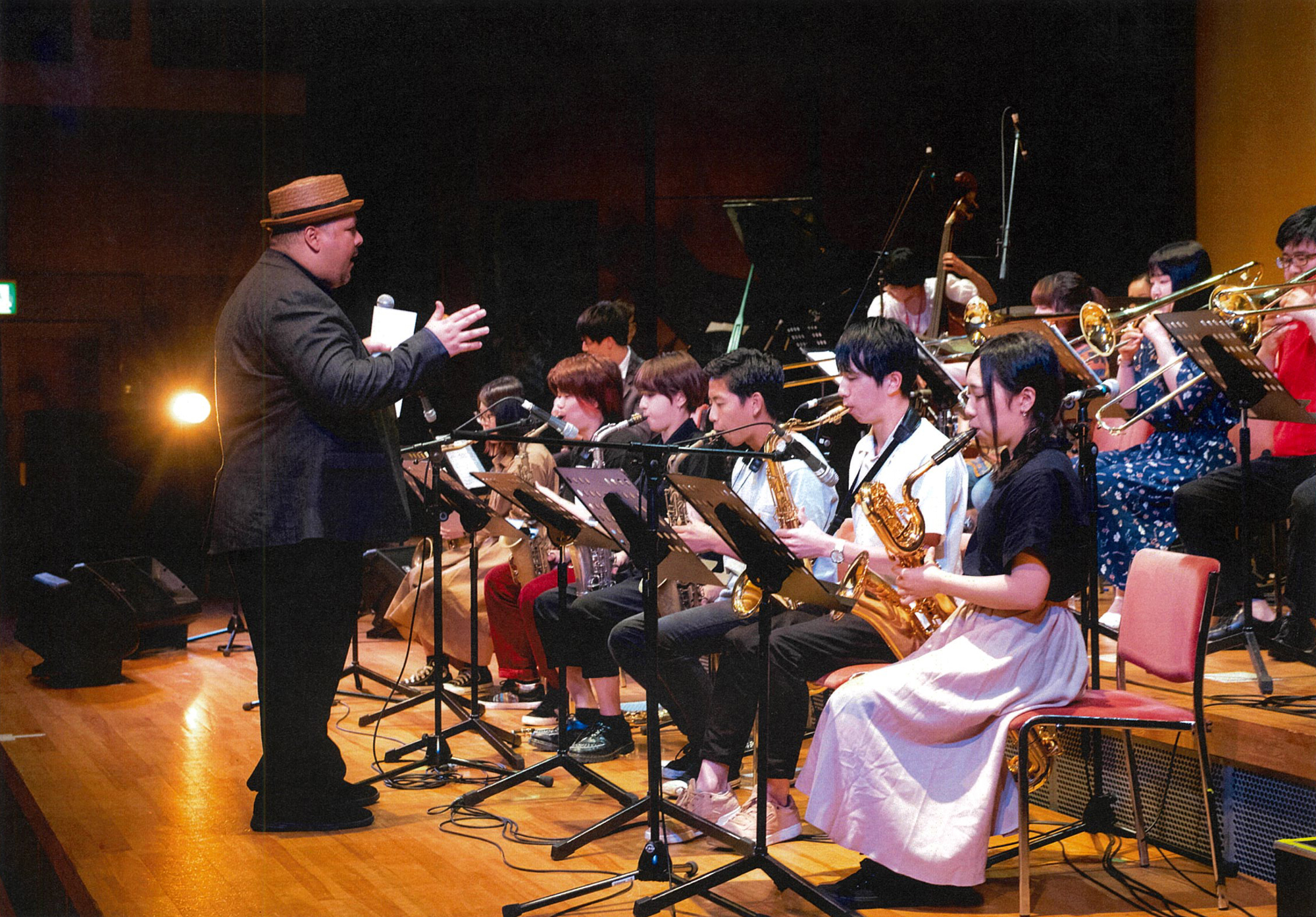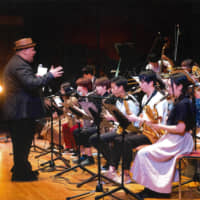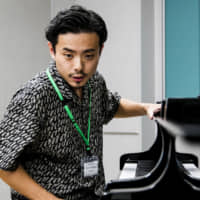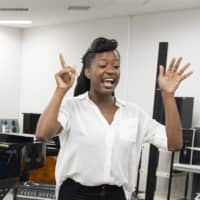The lively season for jazz lovers is on the horizon as the Seiko Summer Jazz Camp (SSJC) prepares for its fourth annual round of jazz seminars in the heart of Tokyo from Aug. 12 to 15.
Launched in 2016, SSJC is a four-day intensive program under the tutelage of leading professionals invited from the jazz mecca of New York to cultivate young musicians in Japan who aim to become professional jazz performers.
“I’d long been entertaining the idea of creating a good educational place for young people in the form of a jazz camp during summer vacation,” said SSJC Executive Director Tomoki Sassa, who launched and produced the camp. While many educational programs for young jazz musicians are set up as summer camps in the U.S., “unfortunately, there are not yet so many opportunities in Japan,” Sassa said.
Looking back, Sassa became a jazz fan during his youth and spent his high school and university days being absorbed in the genre.
“I learned by playing the instruments, taking private lessons, listening to LPs and attending jazz clubs and concerts. But I never thought it would be possible for me to learn from American musicians in a jazz mecca,” Sassa said.
In 1965, Japanese jazz musician Sadao Watanabe, a saxophonist and flutist, returned to Japan after studying at the Berklee College of Music in Boston, and became popular in Japan and abroad.
“However, opportunities were limited for Japanese musicians to study jazz in the U.S. in those days,” said Sassa. “Even today, it’s not so easy.”
SSJC 2019 has invited eight New York-based international musicians as instructors; they are trombonist Michael Dease, pianist Takeshi Ohbayashi, bassist Yasushi Nakamura, drummer Quincy Davis, guitarist Yotam Silberstein, saxophonist Diego Rivera, trumpeter Benny Benack III and vocalist Shenel Johns.
Each instructor will teach their respective specialty to five young musicians between the ages of 16 and 25, who were chosen through auditions. The 40 selected students will journey from around Japan and gather at the Shobi College of Music in Tokyo’s Bunkyo Ward where they study performance techniques and music theory, as well as playing in ensembles from morning to evening for four days.
Dease, who is the lead instructor and in charge of determining the curriculum, shared that the experience of teaching, composing and playing during the camp has grown deeper, more personal and more emotional over the years. “The teachers and the students have a reciprocal relationship where we learn from each other. We learn about the values of our cultures and how to compromise and how to find out new things,” he said.
Among the instructors, Japanese musicians Nakamura and Ohbayashi were inspired by American musicians at jazz camps in the U.S. and Sapporo, respectively, in their youth; this paved the way for their professional careers in New York.
Ohbayashi recounted how he became excited about jazz music and has pursued his career as a musician while overcoming his fear for the future. He wants to support the students at SSJC by using a step-up approach for each individual so they can enjoy performing jazz for many years to come.
“I want to teach a proper playing style that enables the students to play without stress, because incorrect form during basic performances may be a physically heavy burden,” Ohbayashi said. “Regarding the emotional aspect, I would like them to learn the joy of collaboration and communication with other players and the audience.”
Nakamura expects the students to “think about collaboration with others first,” while also emphasizing the importance of each musician’s personality, passion and feeling for music.
“In performing jazz music, we need to establish our personal styles. Through teaching students, I rediscover myself. It makes me aware what kind of player I am and how to convey my music to others,” Nakamura said. “When we perform together, we can understand each other as musicians.”
Comments from last year’s participants reflected this. “I really enjoyed the masterclass given by the instructor even though it was hard for me to keep up with the high-level students,” one student said. Another expressed that “it’s a rare opportunity to meet the actual musicians from the front lines in New York. The fresh experience motivated me a lot.”
“I learned a lot by listening to the performances of professional musicians and playing with them so closely,” said a third.
Ohbayashi also shared his impression of the camp. “Every student is different and has their own sound. Some basics may be fundamentally the same, but everyone’s approach varies,” he said. “We instructors are energized by the honest passion of the young, motivated musicians.”
To provide an opportunity for students to show the results of the four-day camp, SSJC holds a gala concert in the afternoon of the final day. With pianist Junko Moriya as a special adviser, the free concert is open to the public and comprises small groups, a big band and instructor performances.
The excellent performers will be awarded, including a special award that commemorates Honorary Chairman Norio Maeda, a renowned jazz pianist who contributed to SSJC and passed away last year. Additionally, for the very first time, the winner of the top prize will be invited to a two-week program scheduled for June 2020 at the Jazz Institute at Brevard Music Center in Brevard, North Carolina.
The SSJC music program’s participation fee is covered thanks to the sponsorship of Seiko Holdings Co., a Japanese holding company with subsidiaries that manufacture watches and clocks, among other products. Under the corporate slogan “Moving ahead. Touching hearts,” Seiko is supporting sports and music as part of its corporate social responsibility activities. Additionally, Seiko CEO Shinji Hattori, a music lover who composed the company’s theme song “Moving ahead. Touching hearts” in 2015, built quite a rapport with Sassa in supporting the dreams of young jazz musicians.
Sassa recounted the party after the first SSJC in 2016. Students and instructors broke into a spontaneous jam session, and even Hattori popped in to sing. “Since then, the jam session at the party has capped SSJC every summer,” said Sassa. “It’s a wonderful moment with wide smiles on everyone’s faces.”
Sharing live music while teaching and learning from others is a precious experience that touches people’s hearts. And that is what Seiko continues to seek.
The Seiko Summer Jazz Camp gala concert takes place at Shobi Vario Hall in Bunkyo Ward on Aug. 15 at 2 p.m. Admission is free, but tickets must be reserved in advance by Aug. 10. Also, as part of the Sumida Street Jazz Festival, a special concert by SSJC instructors takes place at Sumida Triphony Hall on Aug. 16 (7 p.m.) and SSJC students perform on Aug. 17 and 18. For more information, call 03-3564-4078 or visit www.s-summerjazzcamp.jp and sumida-jazz.jp/sj.






